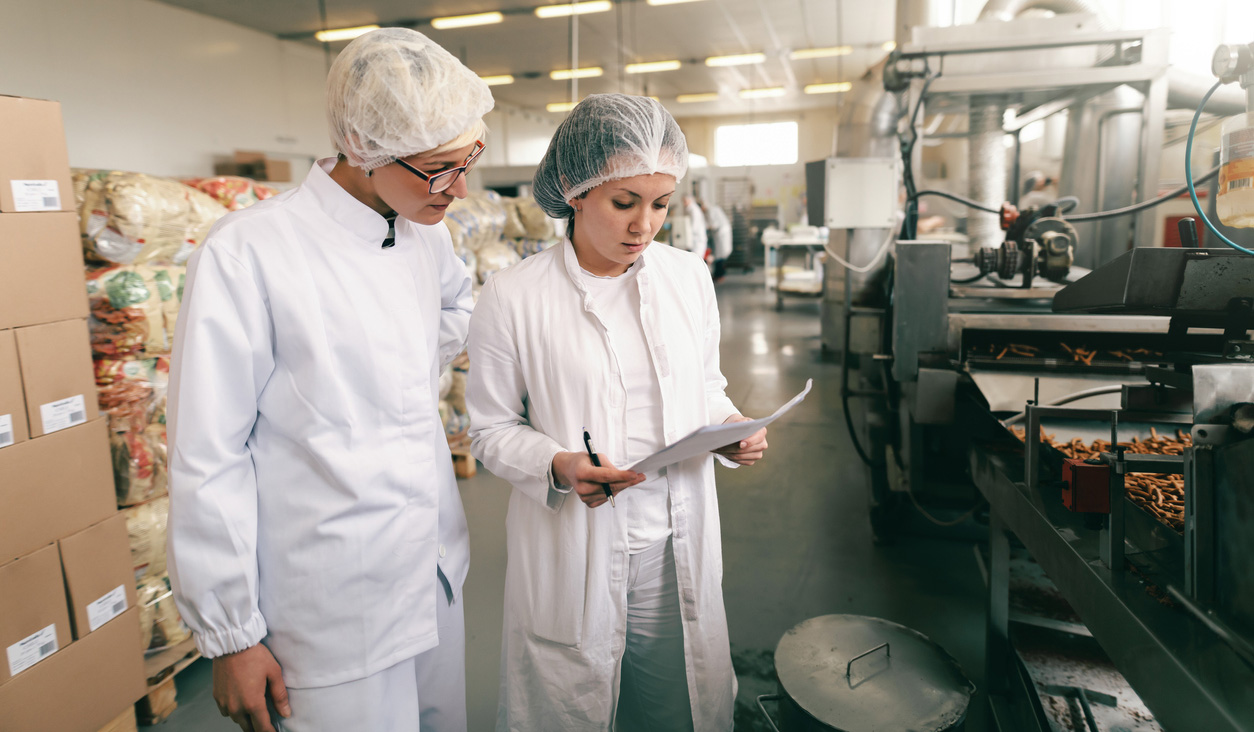How Do You Audit Your Food Safety and Sanitation Program?
Food sanitation and safety programs aren’t just in place for regulatory compliance — they’re a critical part of public safety and keeping the food supply secure. With so much at stake, there is no room for poor processes, inadequate training, or carelessness. Leaders in the food and beverage industry need to frequently review procedures and adherence to regularly make adjustments.
To best evaluate these procedures and how effectively employees adhere to them, you need to conduct a food safety and sanitation audit. Food sanitation and safety ultimately depends on the workers in direct contact with products and equipment. Audits on sanitation help enforce their commitment to high standards — before a breach puts the public in danger — and prepares workers for an unannounced inspection.
How to Prepare for a Food Safety Audit
An effective food sanitation and safety audit occurs in two stages: the preparation, and the actual execution of the audit. This requires a systematic approach to evaluating procedures, facility sanitation, and employee knowledge. To prepare for an internal audit:
Review Complaint Files
Consumer complaints can teach you just as much about your food safety and sanitation processes as positive feedback does. For example, complaints about flavor could be the result of inadequate removal of sanitizer from work surfaces or other forms of contamination. Take note of any issues that might be related to sanitation procedures so you can be even more watchful of potential breakdowns during an audit.
Assemble a Multidisciplinary Audit Team
An effective food safety and sanitation program depends on adherence from each department, so they should all be part of the audit on sanitation. Recruit stakeholders from production, quality assurance, shipping, receiving, maintenance, custodial, and other key areas to gather their thoughts on audit strategy and areas of concern. They understand the inner workings of their departments better than top leaders and will be able to make the audit on sanitation more efficient and thorough.
How to Conduct a Food Sanitation and Safety Audit
Once your team is ready to execute the food sanitation and safety audit, follow these steps:
1. Create the Audit Schedule
An audit is time-consuming and intensive, so doing it all at once could be too disruptive to operations. Securing a food safety audit on your team’s schedule will require you to break the audit down into sections by department or workstation to avoid worker fatigue, machine downtime, or resource constraints. Release the schedule ahead of time to notify all participants of when they’re needed and what will be expected of them during the audit.
2. Execute the Audit
During proceedings, food sanitation auditors should inspect the sanitation conditions of workstations, machinery, and equipment to make sure they meet regulatory standards. Observe employees during process operations and as they follow food safety and sanitation procedures. Verify that all processes are being completed according to procedure documents. Any deviations indicate either a lack of adherence or a need to update documents to match the latest standards.
3. Test Corrective Actions
Employees should be able to confidently react to mistakes, accidents, or deviations from procedures. Simulate breaches in food safety and sanitation standards to test employee knowledge and preparedness. The corrective actions they deploy should match what’s outlined in procedure documents to ensure the response is appropriate.
4. Evaluate the Audit Results
When the audit on sanitation is complete, company leaders should evaluate the effectiveness of existing procedures and how well employees followed them. Take note of any breaches in standards, as they will need to be monitored until corrected. If any practices used during the audit improved food safety and sanitation, update procedures accordingly.
How to Prepare For a Food Safety Audit the Expert Way
Regular audits do more than identify issues, they help leaders reinforce a culture of compliance — one in which each employee knows that maintaining food safety and sanitation is ultimately a team effort. However, while members of your team may be experts at food safety and sanitation, they could also overlook issues that third-party auditors are trained to catch.
Outside support from an organization like AIB International can help manufacturers prevent food sanitation issues, as well as help staff conduct more rigorous audits. If you want professional guidance on preparing for or conducting an internal audit, our expert help is easy to schedule. Through our audit support services, we can help you strengthen your food safety and sanitation program.


